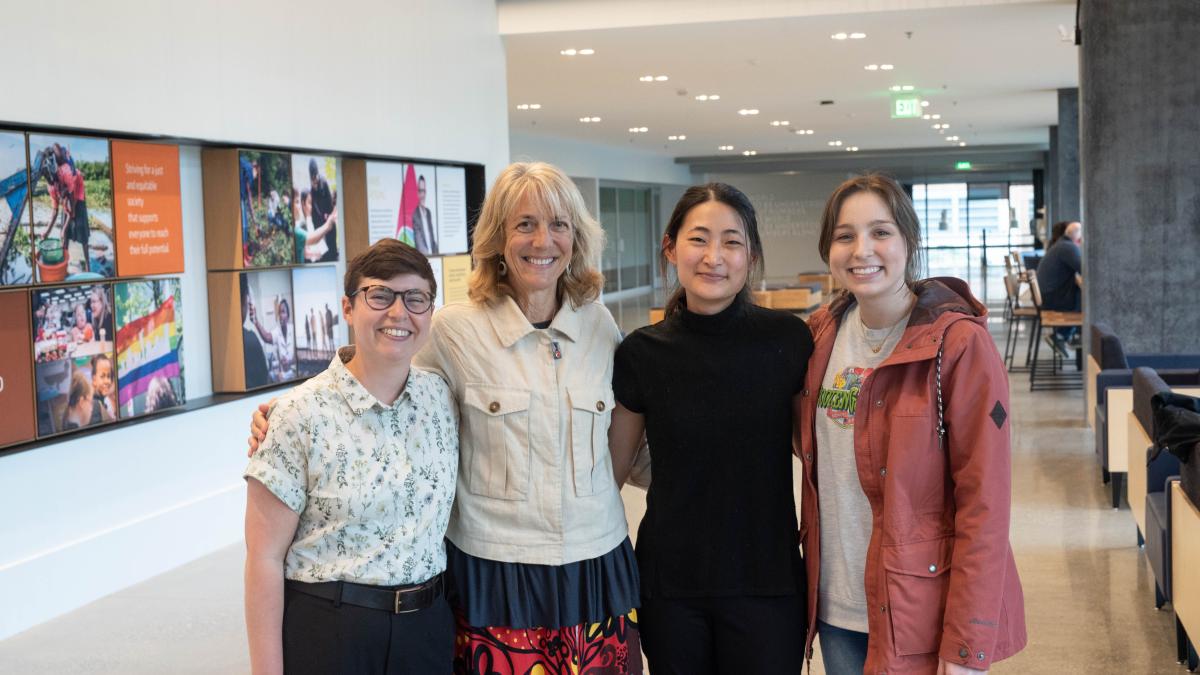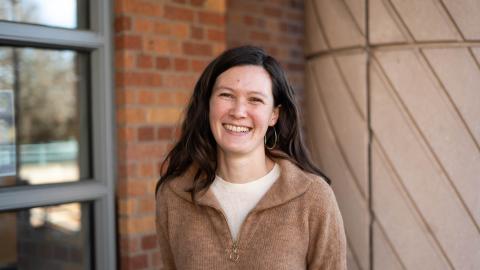Talk to Catherine Karr’s students, past and present, and you’ll hear a common refrain: she is deeply engaged and invested in their lives.
Hanna Bailey, who graduated this spring with an MPH from the UW Department of Environmental & Occupational Health Sciences (DEOHS), noticed this the first time she reached out to her current mentor. She had discovered Karr’s groundbreaking research and community engagement on children’s environmental health as an undergraduate, and knew she wanted to work with her in graduate school.
Even before Bailey submitted her application to the MPH program, Karr spent an hour chatting with her about her lab’s work and Bailey’s interests.
“She has an incredible wealth of knowledge and is a superb leader,” Bailey said of her mentor. “She has a way of holding her students to high standards while patiently giving them room to grow. It's hard to put into words how much I've learned from Catherine, not just in pediatric environmental health, but in how to advocate for communities, how to share knowledge, lead a team, manage time and so much more.”
DEOHS students are now honoring Karr’s dedication with the 2023 DEOHS Outstanding Faculty Mentor award. Recent DEOHS PhD graduate Orly Stampfer, who nominated Karr for the award, presented it to her last week at the DEOHS Graduation Celebration.
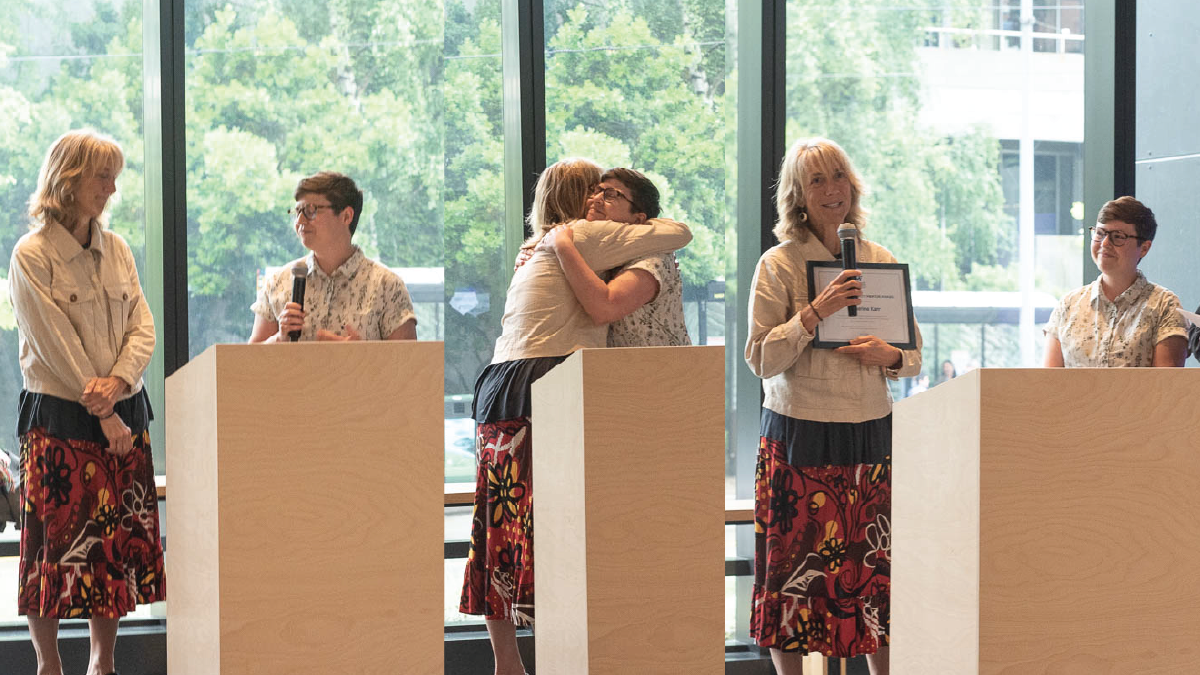
“Catherine has been an extraordinarily supportive mentor for me over the last 7 years and I am extremely grateful,” Stampfer said. “Despite her roles as a professor, pediatrician, director of a major pediatric environmental health center, and PI on large grants, she is humble, easygoing and friendly. She has helped me at every stage of my work, and provides both positive reinforcement and constructive criticism that helps me learn and grow.”
“This award really means a lot,” Karr said as she accepted it. “Somehow I've had the good fortune to attract some pretty great students to work with me ... I get to watch these students bloom and grow and become these amazing scientists. It's been my great honor.”
Public health powerhouse
-inset.png)
Karr’s wide-ranging research as a professor in DEOHS and the UW Department of Pediatrics has clarified the effects of air pollution on childhood brain development; tested air-cleaning solutions to improve health outcomes in children with asthma living in farm communities; and explored the impact of environmental exposures and HIV on maternal and child health in Kenya.
As a physician in specializing in pediatric environmental medicine, she directs the Northwest Pediatric Environment Health Specialty Units (Northwest PEHSU) and co-leads a fellowship to train future physicians in the field. She is also an adjunct faculty member in the UW Department of Epidemiology.
Throughout this work, Karr empowers her students by trusting them to take the lead on important projects, supporting them through challenges both academic and personal, and inspiring them to make a difference in public health.
“Catherine has helped me understand how exposure science is used in epidemiological studies, nuances of translating health research to practice, how to establish relationships with community partners, and how to effectively ask for and respond to feedback from co-authors and reviewers,” Stampfer said.
Karr also offers students professional advice and connections leading to career development, and helps them find funding, participate in conferences and fieldwork, and thrive as researchers.
“When the weather made it difficult for me to get east of the Cascades to set up air samplers, Catherine helped me pivot quickly to getting a flight to the Yakima airport and renting a car,” Stampfer recalled.
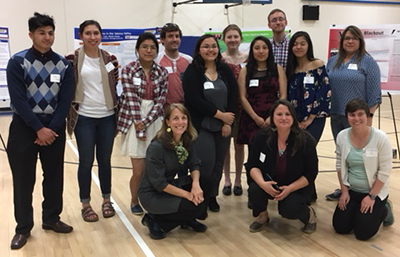
“When I expressed interest in providing air quality sensors as a ‘thank you’ gift to all of the community partners who had participated in our air quality research, Catherine found a source of funding for me to use to purchase the sensors. These are just two examples of many ways she has supported my academic and community engagement work.”
Genuine care for mentees
Though Bailey was new to scientific research when she began her MPH, she appreciated that Karr encouraged her to take on an important project for PEHSU’s future programming.
“I was incredibly nervous but knew it would be okay because Catherine is not the kind of mentor that would ever set you up for failure,” Bailey said. “She trusted me and in return I've grown and learned so much this year.”
Bailey highlighted a theme that many of Karr’s mentees cherish: her deep, respectful and personable engagement with her students.
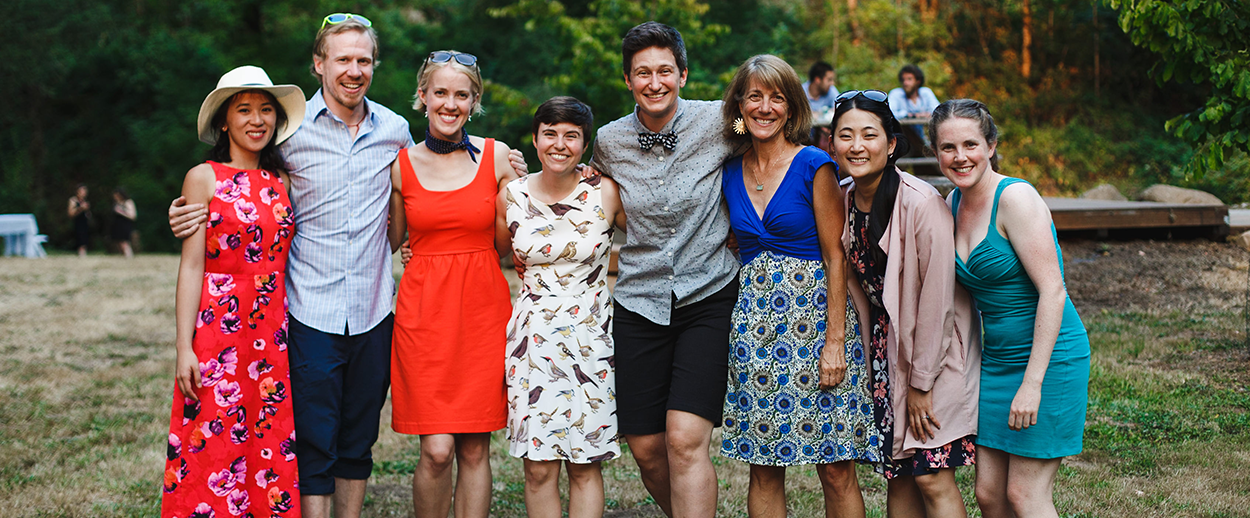
“She'll remember little things about your family, or that you really love your dog, or where you call home,” Bailey said. “She genuinely cares about her mentees and I can confidently say her mentees genuinely care about her, too.”
Making a lifelong impact
Karr’s commitment to mentorship continues even after her students graduate. Recent UW alums who have been mentored by Karr include Yu Ni, now a postdoctoral scholar in epidemiology at UW who still collaborates on research with Karr, and Ryan Babadi, now a research fellow at the US Centers for Disease Control.
DEOHS PhD alum Esther Min, now a clinical assistant professor in DEOHS, calls Karr one of the best mentors she could ever have asked for.
“I’ve been inspired by Catherine's work and encouragement to work on something where my heart is at,” Min said. “I consider myself lucky to have received the genuine care she gives her trainees. Her support has been so important and instrumental to my growth in the department and I’m so grateful for her. I still learn from Catherine to this day; she may have to shoo me out the door one day!”
